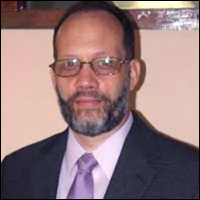
CARICOM’s New Secretary General – Irwin LaRocque
Basseterre, St. Kitts – Nevis
August 15, 2011 (CUOPM)
The new Secretary-General of the Caribbean Community (CARICOM), His Excellency Ambassador Irwin LaRocque will assume duties on today, Monday 15 in a brief ceremony in which Chairman of the Conference of Heads of Government of CARICOM and Prime Minister of St. Kitts and Nevis, Dr. Denzil Douglas will participate.
The event will be held at the CARICOM Secretariat to mark his assumption to office is expected to be webcast across the Region
“Ambassador LaRocque assumes office as the Community’s seventh Secretary-General, with the full confidence and support of the Conference of Heads of Government and the best wishes of the entire Community,” says Prime Minister Douglas said in a statement last week.
His assumption to office follows his selection by the Conference on 21 July 2011.
Ambassador LaRocque who succeeds Sir Edwin Carrington who resigned after eighteen years at the helm, assumes office as the Community’s seventh Secretary-General, with the full confidence and support of the Conference of Heads of Government and the best wishes of the entire Community.’
The former Assistant Secretary General is assuming office amidst concerns from the Community’s civil society that he needs to be given the tools to effectively perform the job he was hired to do.
Former secretary general of the Association of Caribbean States (ACS), Professor Norman Girvan said it was necessary for Ambassador LaRocque to receive the “full support” of regional leaders as he attempts to steer the regional integration grouping over the next three years.
“I know him to be a person of professionalism, integrity and proven commitment to regionalism,” Girvan said, adding “Mr. LaRocque should not be given a basket to carry water.
“If CARICOM is to be re-energised and if the implementation deficit is to be addressed, Mr. LaRocque will need to have the full support of the Heads of Government for reform of governance to provide legal teeth to the decisions of CARICOM organs and to establish an executive authority to oversee implementation,” he added.
Political scientist, Professor Neville Duncan, who believes that LaRocque is capable of “doing great things” has also been critical of regional governments in not outlining the terms of reference for the job.
“They can’t expect the new man to come in and define his new role and function. It has to be the CARICOM heads who do that kind of think,” he said, adding “again true to form they are slipping up on the job”.
He said the leaders had been trying to get the region excited by the prospects of a rejuvenated CARICOM and a reformed Secretariat, but asked “what exactly are they planning to do with that Secretariat and to what use will they put it to ensure quality regional integration.
Duncan said that while many studies on CARICOM undertaken by the University of the West Indies were gathering dust somewhere he expects thee will be new initiatives, including how decisions are arrived at during the annual summit of regional leaders.
“I think most of the decisions should be approved at the national level first before coming to the CARICOM heads of government meeting …and the Secretariat should ensure that such activities are well coordinated and done in a timely manner so that heads of governments meetings are not a waste of time.”
The Caribbean Movement for Civil Empowerment (CMCE), which sent a petition to the regional leaders during their summit in St. Kitts earlier this year, said that while the people of the Caribbean view integration as crucial for the region’s survival and development, there is a strong sense that the process of integration is in decline and is in need of renewed leadership.
It wants the new secretary general “to lead a complete overhaul of both the governance structures and the orientation of the CARICOM Secretariat, giving it the legal space to become an implementation institution.”